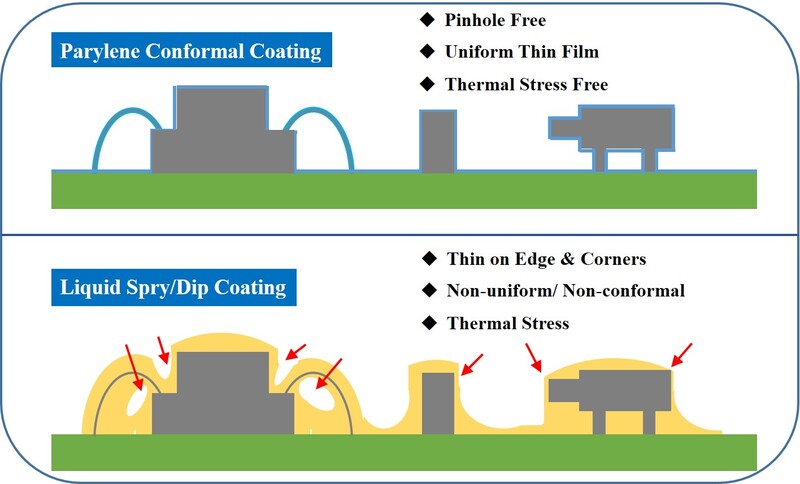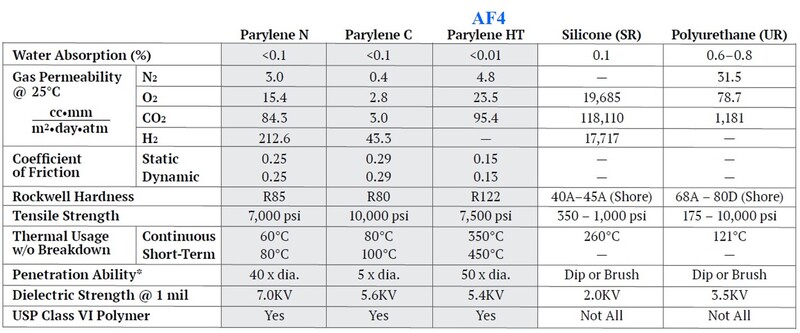Characteristics and advantages of Parylene nano-coating
Conformal Coating
1. Wet coating: It cannot completely cover the slits or corners of the product (thin film thickness), forming product protection defects and affecting the functional life.
2. Nano-coating : Completely infiltrate all parts of the product with nano-molecules, and form a protective film by polymerization.

Nanoscale protective materials
1. Parylene nano-coating is a polymer material made in a vacuum environment without solvent process.
2. High insulation, waterproof characteristics, and can be moisture-proof, anti-rust.
3. The coating has dry lubricating properties, which can inhibit dust adhesion on the surface of silicone rubber.
4. Good chemical properties, resistant to all acid and alkaline substances.
5. Excellent thermal characteristics can be adapted to the temperature range of 350°C to -200°C.
6. Good coating step coverage, no pinhole film (Pinhole Free), uniform film thickness.
7. Nano-scale film thickness, and can control the film thickness to meet customer needs (the thickness can be controlled below 100nm)。
8. The material is colorless and highly transparent (transmittance >90%), without affecting the original appearance and performance of the product.

Excellent biocompatibility material
1. Parylene is FDA approved for many applications and has a USP XXII, VI Class VI biocompatibility rating in compliance with IPC-CC-830 or MIL-I-46058C.
2. Parylene coating can be used to close the tiny pinholes on the surface of medical equipment, and because the surface is smooth, it can reduce pollutants, adhere to inhibit mold and bacteria, and encapsulate a layer of Parylene on the surface of materials harmful to the human body to prevent the release of harmful substances to cell tissue damage.
3. As a medical coating, Parylene has a series of advantages such as ultra-thin, non-porous, uniform, corrosion-resistant, dry lubrication, chemical inertness, and compatibility with human tissue and blood, making it widely used in the biomedical field.
